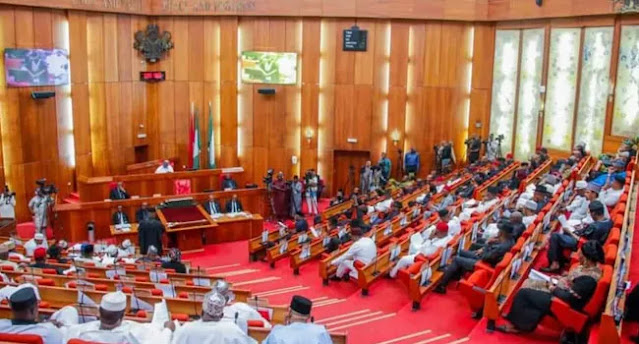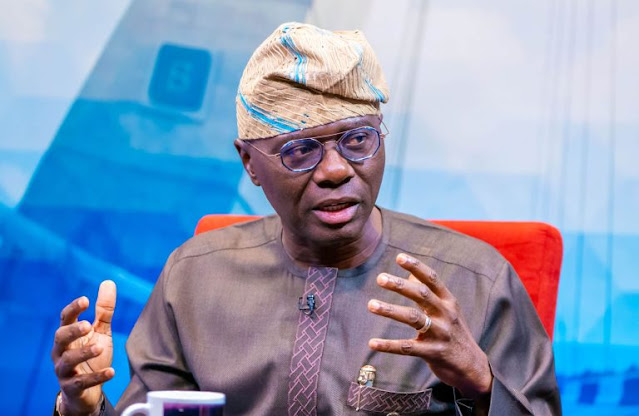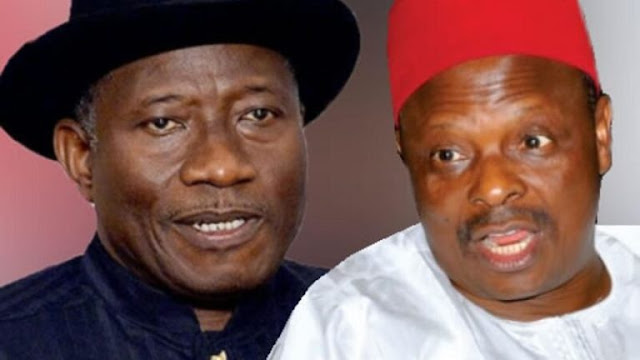In a renewed effort to foster transparency and public understanding of legislative processes, the Nigerian Senate has urged journalists to take on the critical role of educating citizens about the Senate’s Standing Orders. This call was made during a one-day capacity-building workshop held in Abuja, organized specifically for journalists covering the activities of the Senate. The workshop, themed “Understanding the Senate Standing Orders and Effective Reporting,” aimed to equip media practitioners with the knowledge and tools necessary to accurately report on the legislative activities of the upper chamber, thereby bridging the gap between the Senate and the Nigerian public.
The Senate President, Godswill Akpabio, represented by the Deputy Senate President, Senator Barau Jibrin, emphasized the pivotal role of the media in shaping public perception and ensuring that Nigerians are well-informed about the workings of the Senate. Speaking at the event, Senator Jibrin underscored the importance of the Standing Orders, describing them as the foundational framework that governs the operations, conduct, and proceedings of the Senate. He noted that a thorough understanding of these rules would enable journalists to report on legislative activities with accuracy and clarity, thereby reducing the spread of misinformation and misconceptions.
“The Standing Orders are the bedrock of our legislative process,” Senator Jibrin stated. “They guide how we conduct debates, pass laws, and carry out oversight functions. However, these rules are often misunderstood by the public, leading to misconceptions about the Senate’s activities. It is your responsibility as journalists to break down these rules in a way that is accessible to the average Nigerian. By doing so, you help strengthen our democracy and promote transparency in governance.”
The Role of the Media in Legislative Reporting
The call to action comes at a time when the Nigerian Senate is increasingly under public scrutiny. The Senate, as one of the two chambers of the National Assembly, plays a critical role in shaping the nation’s laws, policies, and governance framework. However, the complexity of legislative processes, coupled with limited public access to detailed information, often results in misinterpretations of the Senate’s actions. Misconceptions about the Senate’s activities, such as the passage of bills, oversight functions, or budgetary approvals, can erode public trust in the institution.
Journalists, as intermediaries between the government and the public, are uniquely positioned to address this challenge. By providing accurate and well-researched reports, the media can help demystify the legislative process and foster a more informed citizenry. Senator Jibrin emphasized that the media’s role goes beyond merely reporting events; it involves interpreting and contextualizing legislative activities to ensure that Nigerians understand the rationale behind decisions made in the Senate.
“The media is the bridge between the Senate and the people,” Jibrin said. “When you report accurately and responsibly, you empower Nigerians to hold their leaders accountable. But when misinformation spreads, it creates distrust and undermines the democratic process. This workshop is an opportunity for you to deepen your understanding of our rules and procedures so that you can report with confidence and authority.”
Understanding the Senate Standing Orders
The Senate Standing Orders are a set of rules and guidelines that govern the conduct of senators, the organization of Senate proceedings, and the legislative process. These rules cover a wide range of activities, including the conduct of plenary sessions, committee meetings, voting procedures, and the introduction and passage of bills. They also outline the roles and responsibilities of senators, as well as the ethical standards expected of them.
For journalists, understanding the Standing Orders is essential for accurate reporting. For instance, the process of passing a bill involves multiple stages, including first reading, second reading, committee review, third reading, and eventual passage or rejection. Each stage is governed by specific rules, and misreporting any aspect of this process can lead to public confusion. Similarly, oversight functions, where senators monitor the implementation of laws and policies by government agencies, are often misunderstood by the public. By familiarizing themselves with the Standing Orders, journalists can provide detailed and accurate accounts of these processes, thereby enhancing public understanding.
During the workshop, participants were taken through a detailed breakdown of the Standing Orders by Senate officials and legislative experts. Topics covered included the structure of Senate committees, the rules governing debates and motions, and the procedures for public hearings and oversight visits. The facilitators emphasized the need for journalists to pay attention to the nuances of these processes to avoid sensationalism or misrepresentation in their reporting.
Addressing Misconceptions About the Senate
One of the key objectives of the workshop was to address common misconceptions about the Senate’s activities. Over the years, the Senate has faced criticism from some quarters of the public, who perceive it as disconnected from the needs of ordinary Nigerians. Issues such as the passage of controversial bills, budget padding allegations, and the perceived slow pace of legislative work have fueled negative perceptions. Senator Jibrin noted that while some of these criticisms are valid, many stem from a lack of understanding of the Senate’s processes and limitations.
For example, the public often expects the Senate to pass laws quickly, without appreciating the rigorous processes involved in lawmaking. The Standing Orders require bills to undergo multiple readings and committee reviews to ensure thorough deliberation and consultation. This process, while time-consuming, is designed to produce laws that are well-thought-out and reflective of the public’s interests. However, without proper explanation, these delays can be misinterpreted as inefficiency or lack of commitment.
Another common misconception is the role of senators in budget implementation. While the Senate is responsible for approving the national budget, it does not directly control how funds are disbursed or spent. This responsibility lies with the executive arm of government. Misreporting or misunderstanding this distinction can lead to accusations of mismanagement against senators, further eroding public trust.
By equipping journalists with a deeper understanding of the Standing Orders, the Senate hopes to address these misconceptions and promote a more balanced narrative. “When the public understands why we do what we do, they are more likely to appreciate our efforts,” Senator Jibrin said. “Your role as journalists is to help us tell our story accurately and fairly.”
The Importance of Capacity Building for Journalists
The workshop was part of a broader effort by the Senate to enhance the capacity of journalists covering the National Assembly. Organized by the Senate’s Media and Public Affairs Committee, the event brought together journalists from various media houses across the country. The initiative reflects the Senate’s recognition of the media as a critical partner in the democratic process.
In addition to the focus on the Standing Orders, the workshop also covered topics such as investigative journalism, ethical reporting, and the use of digital tools for effective coverage. Participants were encouraged to leverage technology to provide real-time updates on Senate activities and engage with the public through social media platforms. The Senate also pledged to provide journalists with greater access to legislative documents and resources to support their work.
The Chairman of the Senate Committee on Media and Public Affairs, Senator Yemi Adaramodu, reiterated the Senate’s commitment to fostering a strong relationship with the media. He noted that the Senate values the contributions of journalists in holding the government accountable and promoting transparency. However, he cautioned against sensationalism and urged media practitioners to prioritize accuracy and objectivity in their reporting.
“We are not asking you to sing our praises,” Senator Adaramodu said. “We are asking you to report the truth. When you report accurately, you help us improve as an institution, and you help the public make informed decisions. But when you sensationalize or misreport, it creates unnecessary tension and undermines the progress we are making.”
The Broader Context of Legislative Transparency
The Senate’s call for journalists to educate Nigerians on the Standing Orders comes at a time when public trust in government institutions is a critical issue. Across the world, democratic institutions are grappling with declining public confidence, fueled by misinformation, polarization, and a lack of understanding of governance processes. In Nigeria, these challenges are compounded by socio-economic issues such as poverty, unemployment, and insecurity, which heighten public expectations of elected officials.
By engaging with the media, the Senate aims to address these challenges and promote a culture of openness and accountability. The workshop is one of several initiatives undertaken by the 10th Senate to enhance transparency and public engagement. Others include regular town hall meetings, public hearings on major bills, and the use of social media to communicate directly with Nigerians.
The Senate President, Godswill Akpabio, has repeatedly emphasized the importance of public participation in the legislative process. During his address at the workshop, delivered by Senator Jibrin, he called on Nigerians to take an active interest in the activities of the Senate and hold their representatives accountable. He noted that an informed citizenry is essential for the success of any democracy.
“The Senate belongs to the people,” Akpabio said through Jibrin. “We are here to serve you, but we can only do so effectively if you understand what we do and why we do it. The media is our partner in this endeavor, and we are committed to working with you to ensure that Nigerians are well-informed about our work.”
Challenges Facing Journalists in Legislative Reporting
While the Senate’s initiative has been widely praised, journalists face several challenges in covering legislative activities. One major challenge is the complexity of the legislative process itself. The Standing Orders, while comprehensive, are written in technical language that can be difficult for non-experts to understand. This complexity makes it challenging for journalists to translate legislative proceedings into stories that are accessible to the general public.
Another challenge is the limited access to information. Although the Senate has pledged to provide journalists with greater access to legislative documents, some reporters have complained about bureaucratic hurdles and delays in obtaining critical information. This can hinder their ability to provide timely and accurate reports.
Additionally, the polarized nature of Nigerian politics often places journalists in a difficult position. Reporting on controversial issues, such as budget disputes or impeachment proceedings, can expose journalists to pressure from various interest groups. Maintaining objectivity in such an environment requires a high level of professionalism and ethical commitment.
To address these challenges, the Senate has promised to continue investing in capacity-building programs for journalists. The workshop in Abuja is expected to be the first in a series of initiatives aimed at equipping media practitioners with the skills and resources they need to excel in legislative reporting.
The Way Forward
The Senate’s call for journalists to educate Nigerians on the Standing Orders is a step in the right direction. By fostering a better understanding of the legislative process, the Senate hopes to build public trust and strengthen Nigeria’s democracy. However, achieving this goal will require sustained collaboration between the Senate, the media, and the public.
For journalists, the task ahead is to leverage the knowledge gained from the workshop to produce high-quality, informative reports that resonate with Nigerians. This includes breaking down complex legislative processes into simple, relatable terms and providing context for the Senate’s actions. It also involves holding the Senate accountable by asking tough questions and investigating issues of public interest.
For the Senate, the challenge is to maintain its commitment to transparency and accessibility. This includes ensuring that journalists have timely access to information, engaging with the public through various platforms, and addressing criticisms constructively. By working together, the Senate and the media can create a more informed and engaged citizenry, which is essential for the growth of Nigeria’s democracy.
In conclusion, the Senate’s initiative to educate journalists on the Standing Orders is a commendable effort to bridge the gap between the legislature and the public. By empowering journalists to report accurately and responsibly, the Senate is taking a proactive step toward dispelling misconceptions and fostering transparency. As Nigeria continues to navigate its democratic journey, the media will play an increasingly important role in shaping public perceptions and holding the government accountable. The success of this initiative will depend on the commitment of all stakeholders to uphold the principles of accuracy, objectivity, and public service.






